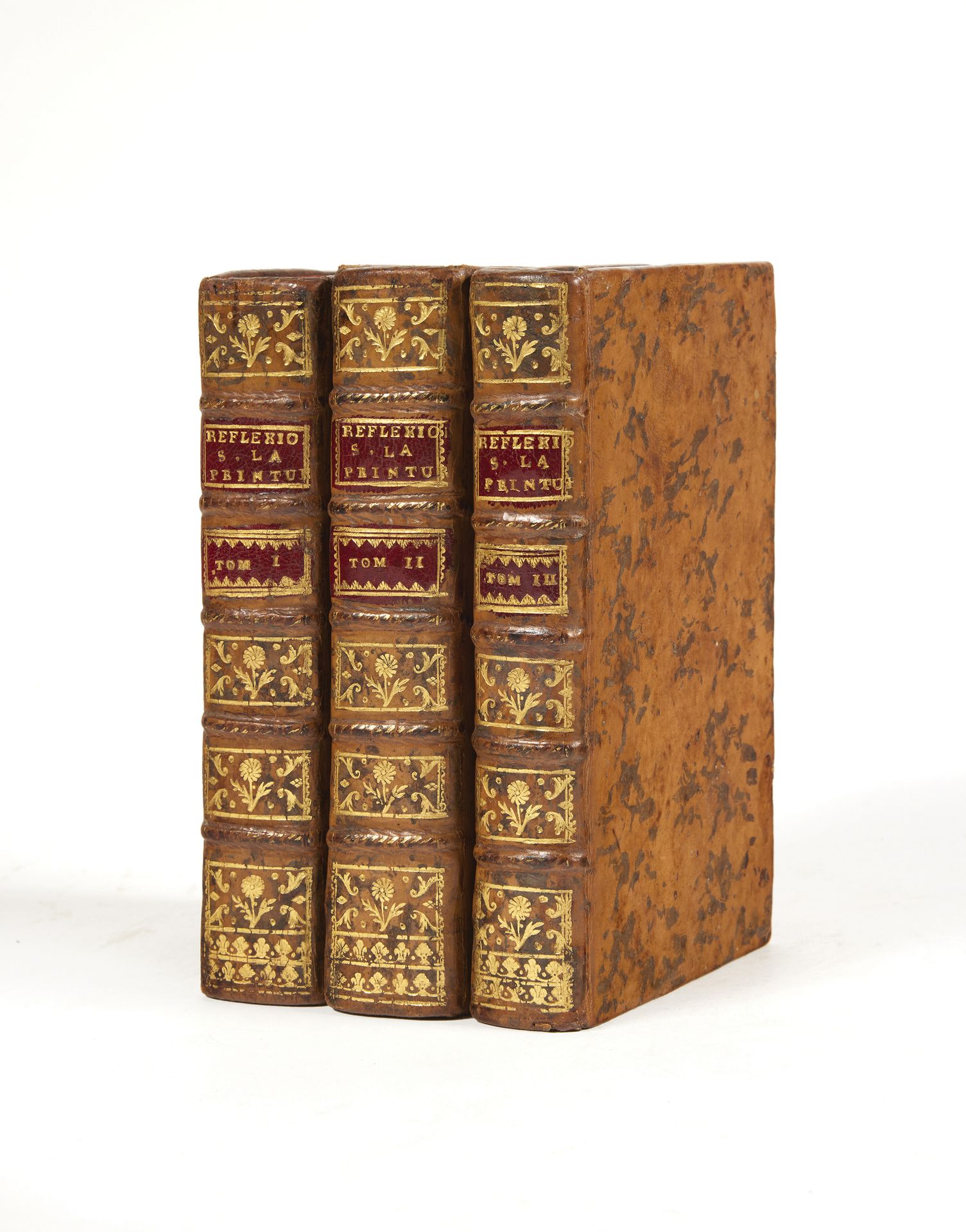Description
DU BOS, Jean-Baptiste, abbé
Critical reflections on poetry and painting. Sixth edition. Paris, Pissot, 1755. 3 volumes in-12 (166 x 95 mm) of 6 ff.n.ch., 525 pp. for volume I ; 5 ff.n.ch., 594 pp. for volume II ; 4 ff.n.ch., 427 pp. for volume III. Marbled calf, spine decorated, red edges (period binding). Brunet, II, 848. Sixth edition of this great classic. Published for the first time in 1715 in only two volumes, the work saw seven consecutive editions in the 18th century. Always a sought-after work, it was reprinted two centuries later (1973). Beautiful edition in three volumes, the last of which contains important chapters on music. Nice copy.
You may also like
